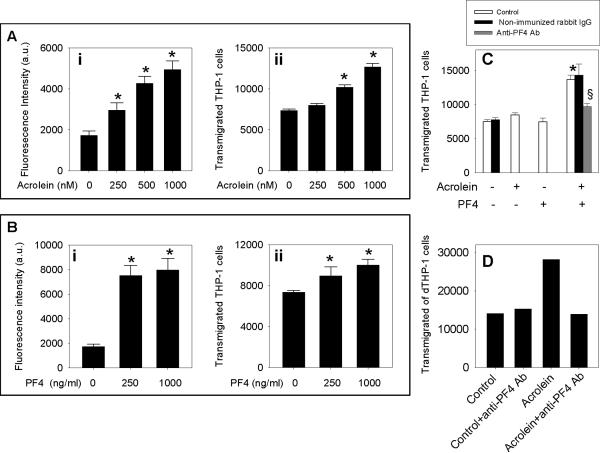Figure 3. Acrolein and platelet factor 4 enhance endothelial activation.
A) Acrolein causes endothelial activation. HUVEC were incubated with acrolein in DMEM without serum and THP-1 cells adhesion (i) and transmigration (ii) were measured as described under Materials and Methods. B) PF4 causes endothelial activation. HUVEC were incubated with PF4 in DMEM without serum and THP-1 cells adhesion (i) and transmigration (ii) were measured. C) Anti-PF4 antibody diminishes acrolein-induced endothelial activation. HUVEC were pre-incubated with anti-PF4 antibody (20 μg/ml) or non-immunized rabbit IgG (iso type control for anti-PF4 antibody; 20 μg/ml) for 30 min in DMEM without serum. Sub-threshold concentrations of acrolein (250 nM), PF4 (250 ng/ml) or acrolein (250 nM) + PF4 (250 ng/ml) was added to the medium and transmigration of THP-1 cells was measured as described under Materials and Methods. D) Anti-PF4 antibody diminishes the transmigration of THP-1 induced by the plasma acrolein-fed mice. Plasma of control (pooled from 8 mice) and acrolein-fed (pooled from 8 mice) mice was incubated with anti-PF4 antibody (20 μg/ml) for 30 min and transmigration of THP-1 cells was measured. Values are means ± SEM. *P<0.01 vs control, §P<0.01 vs acrolein + PF4.

